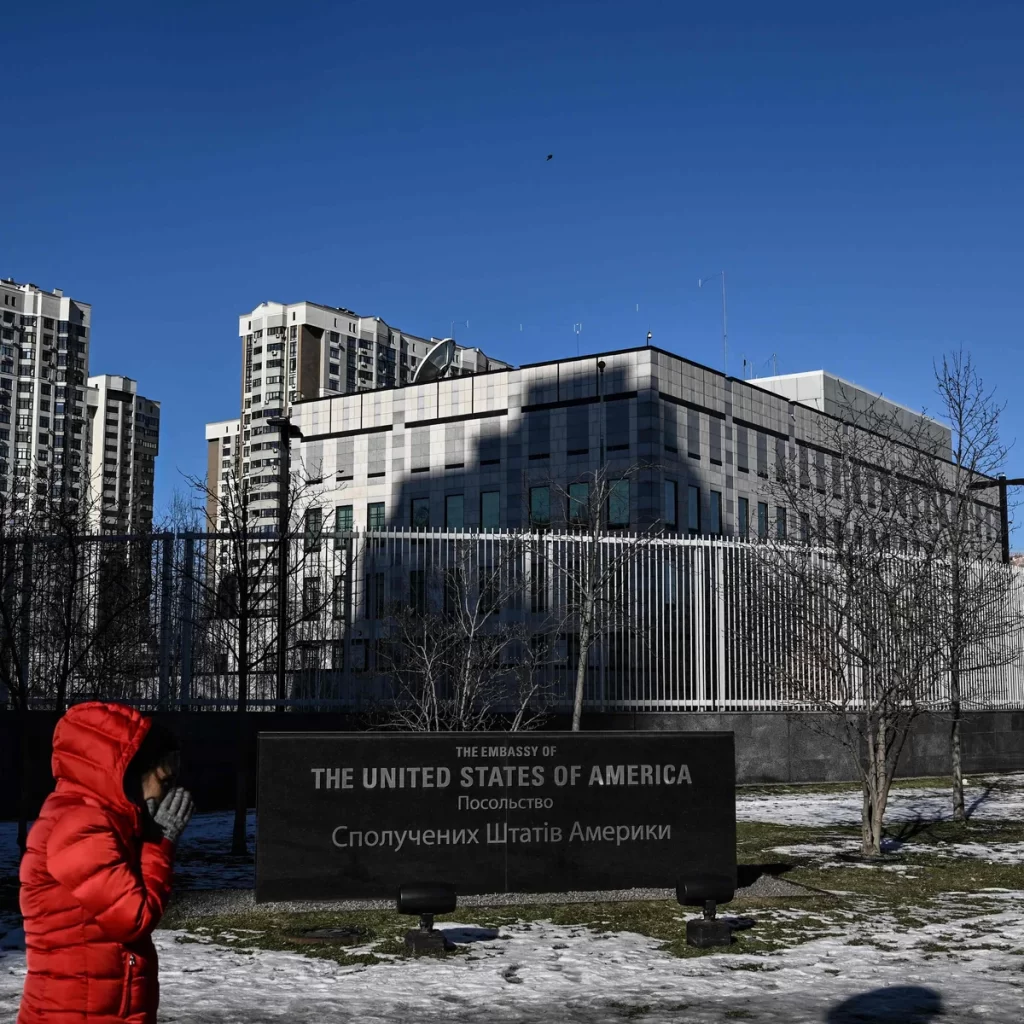The United States Embassy and several Western diplomatic missions in Kyiv announced their closure Wednesday, citing intelligence warning of potential significant Russian air attacks on the Ukrainian capital, marking an escalation following recent U.S. policy changes toward the conflict.
The security measure comes in direct response to Russian officials’ warnings after President Joe Biden authorized Ukraine to deploy U.S.-made missiles against targets on Russian soil, a decision that drew sharp criticism from the Kremlin. The U.S. Embassy indicated the closure was temporary, noting ongoing Russian missile and drone attacks on Kyiv.

While Italian and Greek embassies also suspended operations, British diplomatic facilities remained open, highlighting varying threat assessments among Western allies.
The diplomatic tension coincides with the war’s thousandth day and growing international complications, including North Korea’s expanded military support for Russia. U.S. officials cited this development as a key factor in Biden’s decision to broaden Ukraine’s strike capabilities.
In response, Russian President Vladimir Putin announced a revised nuclear doctrine Tuesday, lowering the threshold for potential nuclear weapon use. The new policy permits nuclear responses to conventional attacks on Russia by any nation supported by nuclear powers, potentially encompassing U.S.-backed Ukrainian operations.
Ukraine has already employed its newly authorized capabilities, using American-made ATACMS missiles to strike inside Russian territory. Ukrainian officials claim successful attacks on a cargo drone factory in Russia’s Belgorod region and an arsenal near Kotovo, approximately 680 kilometers behind the Ukrainian border, though these claims remain unverified.
The Institute for the Study of War, a Washington think tank, suggests that while the U.S. policy shift may not fundamentally alter the conflict’s trajectory, it could significantly impact Russian military capabilities. “Ukrainian long-range strikes against military objects within Russia’s rear are crucial for degrading Russian military capabilities throughout the theater,” the institute reported.
South Korean intelligence indicates North Korea has increased its support to Russia, supplying additional artillery systems and deploying soldiers to Russian marine and airborne units, with some already engaged in frontline combat operations.
Western officials warn that Russia has been accumulating powerful long-range missiles, potentially preparing for a campaign targeting Ukraine’s power infrastructure as winter approaches.
AP



